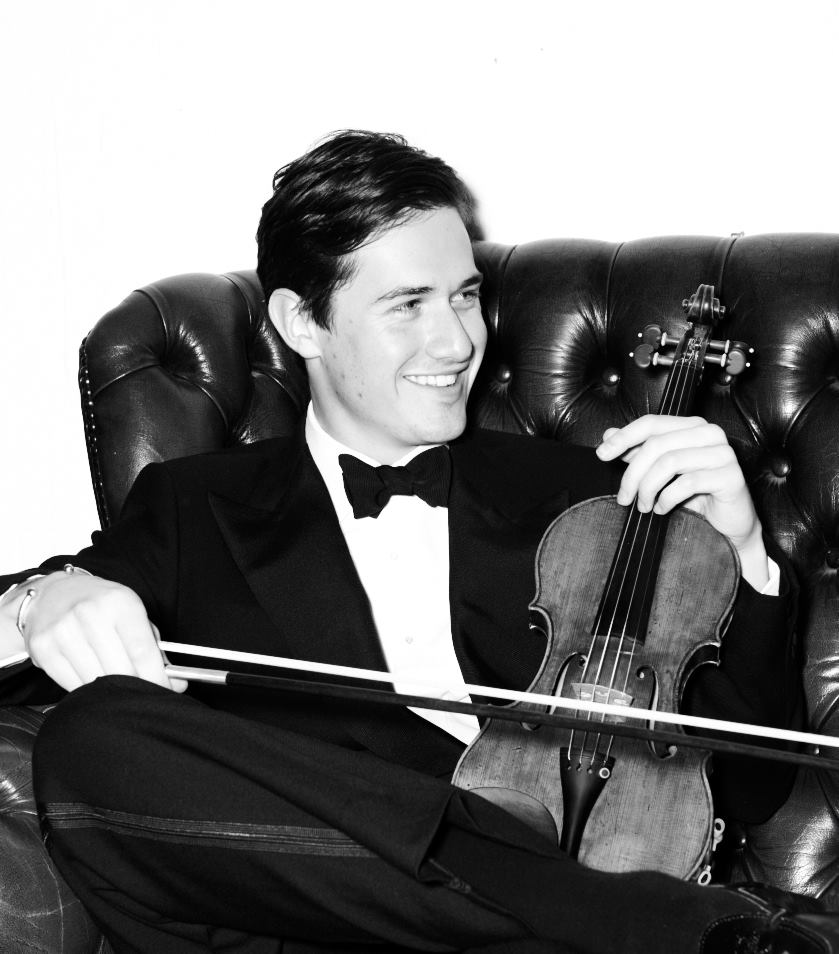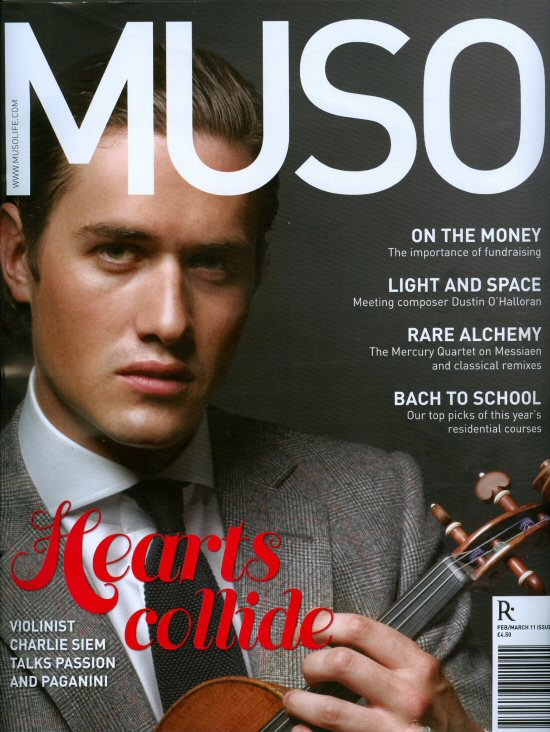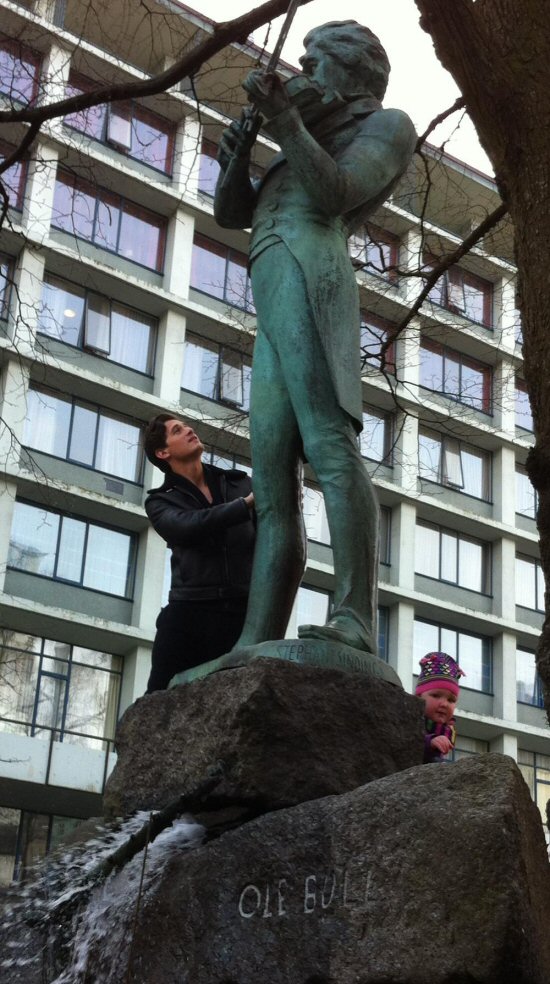An Unlikely Enigma
Clean-cut virtuoso violinist Charlie Siem seems almost too good to be true. Rebecca Lowe attempts to dig some dirt.
Having heard Charlie Siem play in London on several occasions, I was pretty excited when Muso called to ask if I’d like to interview him for a feature. Not quite so excited as my mother, however, who had once encountered Siem at an intimate classical club night at The 100 Club and been overwhelmed by his youthful panache and provocative sweating.
‘Charlie Siem – is that the James Dean one?’ she asked. ‘The virtuosic one with the slick hair and sexy, half-unbuttoned shirt?’
When I relay this to Siem, he laughs and seems genuinely flattered by the compliment. ‘That was very nice of her,’ he says. ‘No one has said that before. It’s a first, and – so far – a last.’
Visually, Dean isn’t a bad comparison, but Siem is certainly no obstreperous rogue – he’s a self-confessed workaholic, fascinated to the point of obsession with an instrument he first picked up at the precocious age of three. When we speak, the 25-year-old, whose father is from Norway, has just discovered he is related to the famous Norwegian violinist Ole Bull (Bull was Siem’s grandmother’s first cousin six-times-removed’s great nephew, no less), and his elation is palpable.
'He was the most famous violinist after Paganini in the 19th century,’ he enthuses, ‘and he was a really far-out character. He was nuts. He had amazing charisma and he was an amazing improviser, and he captured the imagination of everyone. For me he encapsulates what it means to be a truly virtuoso performer.’
Indeed, if Siem would relish a comparison, with anyone, it’d almost certainly be with Paganini, whose fearsome flamboyance and technical prowess revolutionized the violin in the early 1800s during a turbulent career beset by illness, bankruptcy and depression. ‘Performing musicians were usually servants to a court or royal family, and they were in the background,’ Siem says. ‘But in the 19th century, people like Paganini took charge and became artists in their own right. They were phenomena, as it were. That was the beginning of superstar musicians.’
Siem is clearly besotted with this era and uses the word ‘virtuosic’ 17 times during our interview – so my transcript tells me. I get the strong impression that he would love to be a ‘superstar’ musician of the 21st century, though his natural modesty – which, after 90 minutes of chat, I conclude is not just some convenient affectation to garner decent PR – will not allow him to say so directly.
It is perhaps a shame, then, that his prodigious talent is not matched by a suitably salacious life story to ignite the public imagination. He may play like a man possessed. But his polished Tom Ford appearance and public school charm is a far cry from Paganini – a publicist’s dream of hunched, satanic spindliness that set him apart from his rivals and gave his performances a handy Mephistophelian edge.
‘Well, maybe I just need someone to start some rumours for me,’ challenges Siem, referring to widespread murmurings that Paganini’s otherworldly talent was due to him selling his soul to the devil, making each performance a surefire box office hit. ‘You could say I’ve been to prison five times, or that I sleep with a gun.’
It’s true – he does. And not just any old gun; it’s a rapid-fire MT Browning heavy machine gun, which he uses to mow down garden pests and vermin along with the occasional uncooperative lover who answers back and refuses to fund his crack and crystal meth habits.
OK, that’s not entirely true. Or at all true. But the alternative – that Siem was brought up in Chelsea and Kensington in a loving, comfortable family and spent his formative years at Eton and Cambridge – just doesn’t quite inspire the same visionary fervor. Where’s the struggle, the angst, the self-serving psychosis? The rebellion, the raves, the rampant, hedonistic romps?
‘That’s all a bit of a cliché, I think,’ Siem says, only slightly defensively. ‘I think what drives you to be a musician is joy. [Music] is a means of self expression and if you have suffered a lot it almost becomes introverted and feeds that feeling. Otherwise, it is a sense of sharing with as many people as possible, and it’s a very positive thing.’


